25 more badass women shaping climate action
From sustainable financiers to community organizers to breakthrough scientists, these inspirational individuals are disrupting the status quo. Read More

Image by GreenBiz Group
This is the fourth year GreenBiz has curated the Badass Women list to coincide with International Women’s Day, on March 8. Scan the 2021, 2020 and 2019 editions for more inspiration.
It seems appropriate to start with a disclosure: This list is completely subjective.
There was no nomination process, although I gratefully accepted suggestions from respected colleagues during the course of the research. As has been the case since we introduced this project in 2019, the list of candidates for future consideration quickly swelled beyond the arbitrary cutoff number I’ve been using every year. I’m sure that next week and the week after and the week after, I’ll meet or hear about another inspirational female whose work deserves more attention from funders, journalists and the rest of the world.
In its definition of the term “badass,” Merriam-Webster points to someone’s willingness to cause trouble — always a sign of someone disrupting the status quo — and for their “formidable strength and skill.” It’s in that spirit that I’m using this adjective.
Whether it’s activists Xiye Bastida, Destiny Hodges, Sônia Guajajara and Gloria Walton rallying Black, Indigenous or people of color (BIPOC) communities typically excluded from the climate dialogue; financiers Geeta Aiyer and Durreen Shahnaz bringing much needed investments in sustainable development; STEM pioneers Anousheh Ansari or Jennifer Holmgren catalyzing climate tech breakthroughs; or corporate sustainability leaders such as Ashley Allen and Elysa Hammond, each individual is making her mark in unique and undeniable ways, advocating for causes close to their hearts.
Some have been part of the climate movement for a matter of years, some for decades.
Asked for her advice on how youth can get more involved in the climate movement, Bastida, who turns 20 in April, said in an interview last year: “Be who you are, know yourself, and ask yourself what you can add. If you don’t find anything that fits you, just Google a cause that you are interested in supporting and get involved. If there’s nothing, come up with it yourself. It’s true that a lot of times, there are no spaces for us at the table to share our voices and opinions. And if you can’t find a seat at the table, just build your own table.”
Personally, I think that advice applies at any age.
With no further preamble, meet this year’s 2022 cohort of badass women shaping responses to climate change. Thank you for giving us hope.

Geeta Aiyer, Boston Common
Geeta Aiyer, Founder and President, Boston Common Asset Management
Majority-employee owned Boston Common Asset Management isn’t the biggest investment firm championing ESG — with $5.7 billion in assets under management as of November — but Indian-born founder Geeta Aiyer’s track record of bold leadership on gender equity and climate is lengthy.
The firm’s promotion of these causes reaches back to its founding in 2003, and under the Harvard MBA’s ongoing direction, Boston Common remains active on environmental issues. It was one of 30 financial institutions in November to declare plans to eliminate “agricultural commodity-driving deforestation” from its portfolio by 2025.
Aiyer is also founder of nonprofit Direct Action for Women Now Worldwide. In 2015, she received the Joan Bavaria Award for Building Sustainability into the Capital Markets. “In my view, true market efficiency depends on active investor participation: active investing with analysis and judgment and active engagement with clarity of purpose,” she said during her acceptance speech. “This does not happen without effort.”

Ashley Allen, Oatley
Ashley Allen, Chief Sustainability Officer, Oatly
Strictly speaking, Ashley Allen has spent most of her career on climate strategy within the public sector, with the U.S. State Department, USAID and on the White House Environmental Council, where she helped launch President Barack Obama’s U.S. Climate Action Plan. She switched to the private sector in 2017.
As CSO for the almost-30-year-old Swedish dairy alternative Oatly, Allen is shaping a series of commitments, including many pegged to a 2029 time frame — here’s her complete “to-do” list. One pledge is to reduce water withdrawals by at least least half from 4.3 liters per liter of Oatly milk. The company is also championing an effort to convert 2.9 billion liters in dairy milk consumption to Oatly’s oat milk by 2025, saving an estimated 2.5 million tons of CO2 equivalent. And like other food companies, it is supporting regenerative agriculture initiatives, including a program to help oat farmers derive more economic value from selling oats rather than heavily subsidized crops such as corn and soybeans.
Known for the “cheeky” and controversial environmental statements on its cartons, Oatly prides its bottom-to-top commitment to embedding environmental and social considerations into its product.
Allen joined Oatly in mid-2020, inspired by the attention the public company’s CEO pays to sustainability. “We’re very adamant that it is a core value in our company,” she said in September. “In fact, it pretty much is our business model.”
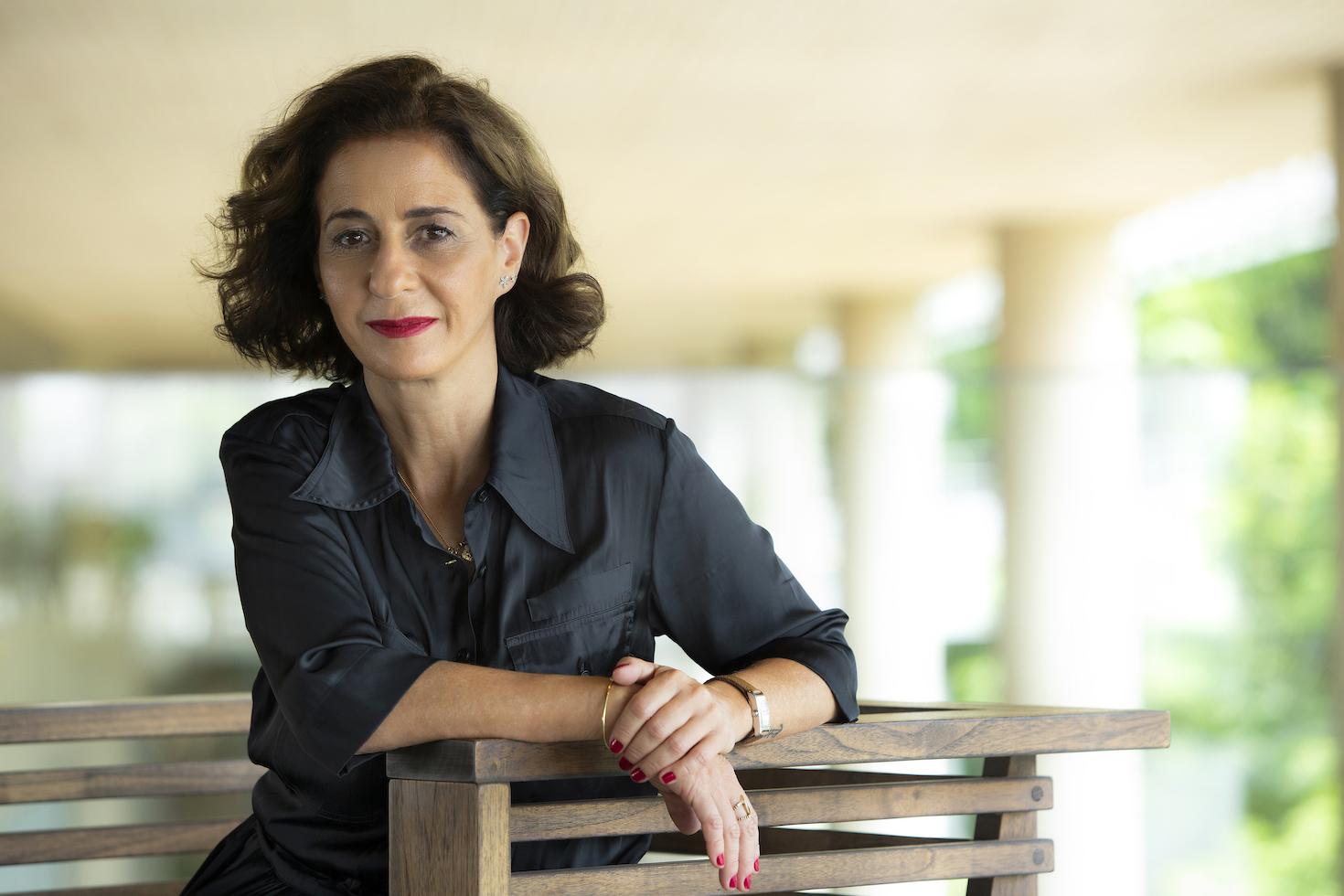
Andrea Alvares, Natura/Image by Roberto Setton
Andrea Álvares, Chief Brand, Innovation, International and Sustainability Officer, Natura&Co
Natura&Co — the Brazilian parent company of cosmetic and personal care brands including Natura, Body Shop and Avon — was the first publicly traded company to earn B Corp status, so environmental and social considerations are core to its governance. That’s one reason its sustainability leader, Andrea Álvares, is also responsible for Natura’s brand, innovation and international strategies. They are interdependent.
“When you consider Natura&Co, these things have always been interconnected,” she told me last month. And innovation is core to its operations: Consider that at least some of Natura&Co’s brands have been offering refillable packaging since the 1980s.
Alongside her day job, Álvares is part of the executive committee for the World Business Council for Sustainable Business Development, and she was a founding member of Women of Brazil. Her priorities this year include managing Natura&Co’s commitment to preserving at least 7.4 million acres of land in the Amazon by 2030 (it has already preserved more than half that amount) and working with other corporations and stakeholders to ensure zero deforestation in the region by 2025. One important tool to that end is PlenaMata, an extensive mapping and information resource for the region.
Also central to the Natura&Co deforestation plan is climate justice and providing opportunities for Indigenous and local communities in the region. “You can have socioeconomic development alongside conservation,” Álvares said.
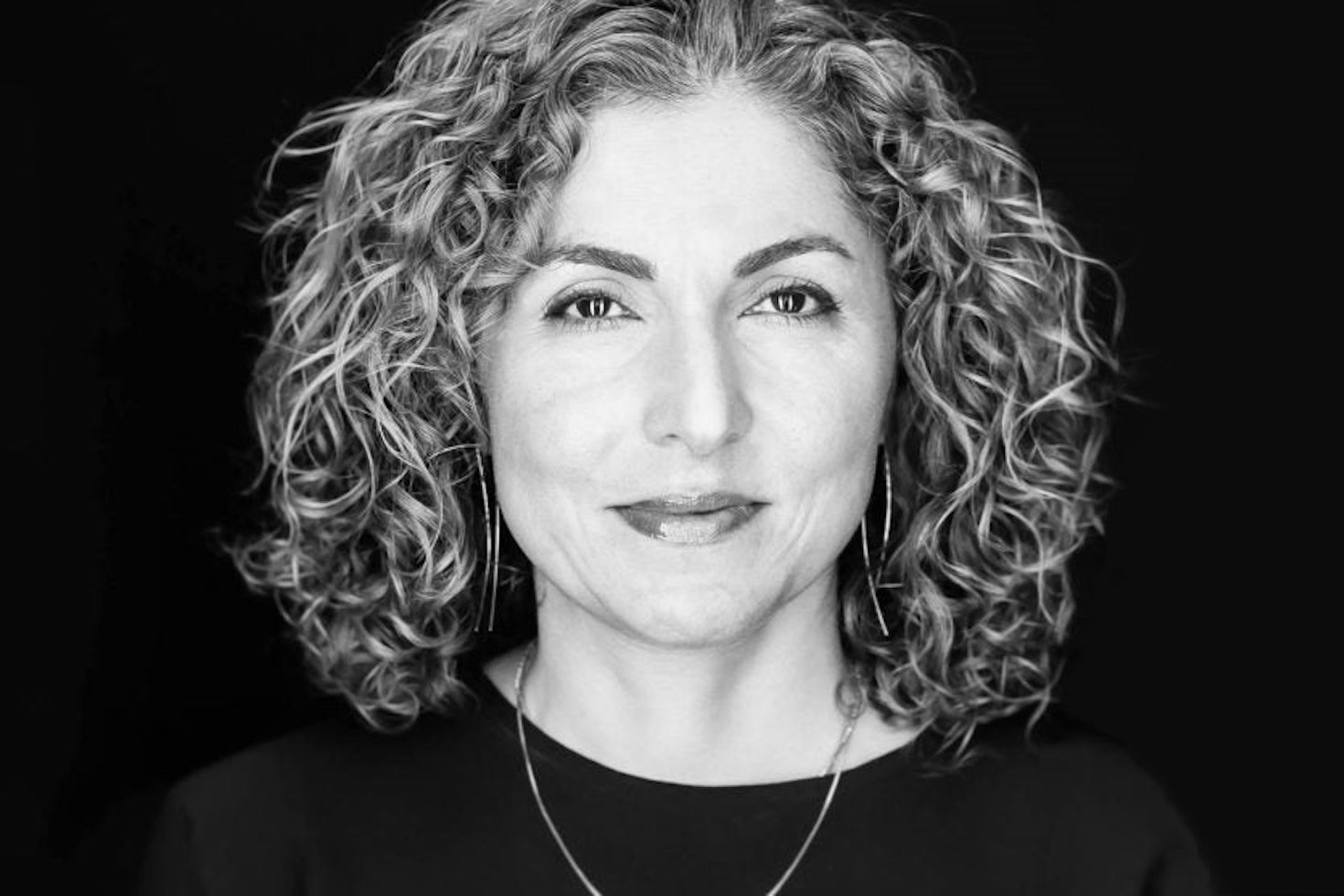
Anousheh Ansari, XPrize
Anousheh Ansari, CEO, XPrize
As a child in Iran, Anousheh Ansari dreamed of reaching the stars. Later, as an American entrepreneur, she flew a lot closer as the fourth private explorer and first woman to participate in a 2006 space expedition. Do the math: That’s 15 years before Jeff Bezos.
Ansari immigrated to the United States as a teenager, earning degrees in electronics, computer and electrical engineering and then founding a series of telecommunications and technology startups, including internet of things company Prodea Systems, where she is still the executive chairwoman.
Since October 2018, Ansari has been CEO of the XPrize foundation, the organization behind an ongoing series of innovation competitions intended to “solve humanity’s grand challenges.” (Ansari and her family sponsored the first XPrize competition, a $10 million contest focused on commercial spaceflight.)
From a climate standpoint, all eyes are on the $100 million XPrize for Carbon Removal funded by the Musk Foundation. But at this writing, the organization is also managing contests aimed at developing “tomorrow’s proteins” and assessing rainforest biodiversity.
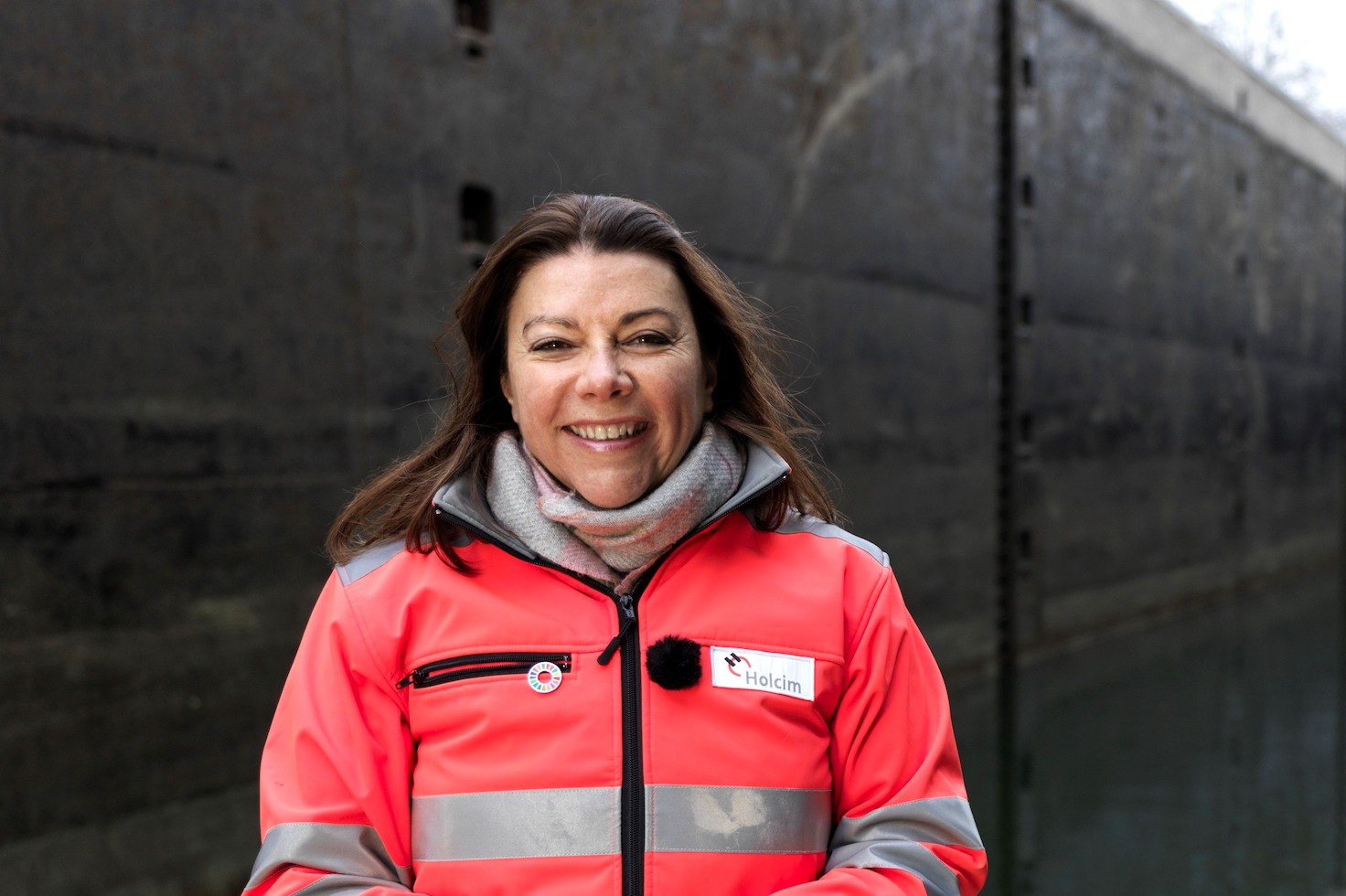
Magali Anderson, Holcim
Magali Anderson, Chief Sustainability and Innovation Officer, Holcim
Engineer Magali Anderson has long worked in male-dominated industries, including spending her early career on an offshore oil rig. During almost 15 years with oilfield company Schlumberger, she held roles ranging from operational maintenance to materials management to procurement before joining Swiss building products company Holcim in 2016 as head of health and safety.
Anderson became the company’s first CSO in March. Under her leadership, sustainability is part of every business decision and, as her title suggests, considered an opportunity for innovation. “The way we look at sustainability now in Holcim is as a way to transform the company,” she recently told me.
One example is a long-time partnership with French company XtreeE; last year, it took a stake in the company, which is developing ways to 3D print concrete slabs that sequester carbon. Holcim’s own ECOPact green concrete, which includes upcycled materials from demolished buildings, is produced using 30 percent to 70 percent less emissions than standard offerings.
Three more data points: Last October, Holcim became the first company in its sector to have its 2050 net-zero targets — including Scope 3 — validated by the Science Based Targets initiative. One month later it became a founding member of the First Movers Coalition, agreeing to step up its purchases of zero-emissions trucks. Holcim has also agreed to tie 40 percent of its financing strategy to sustainability metrics by 2024.

Shalanda Baker, DoE
Shalanda Baker, Deputy Director of Energy Justice, Office of Economic Impact and Diversity, U.S. Department of Energy
Air Force veteran Shalanda H. Baker was a law and public policy professor at her alma mater Northeastern University before joining the Biden administration in 2021 as its first deputy director for energy justice.
A long-time advocate of energy equity, Baker was co-founder of the Initiative for Energy Justice, which “provides technical law and policy support to communities on the front lines of climate change.” The organization’s initial focus has been on supporting the clean energy transitions in Hawaii, California and New York, ensuring that the voices of communities most affected by climate change have a say in the shift away from fossil fuels.
The thesis of Baker’s 2021 book, “Revolutionary Power: An Activist’s Guide to the Energy Transition,” is that energy policy should be the next domain for civil rights. As she noted in late 2021 during a VERGE 21 interview, rates of energy insecurity are alarmingly high: 45 percent among Latino and Hispanic people, 52 percent among Black communities, and 62 percent among First Nations tribes.
“If we don’t engage stakeholders in this transition, we’re going to fail; the solutions that we create will be ill-suited for the moment,” Baker says.
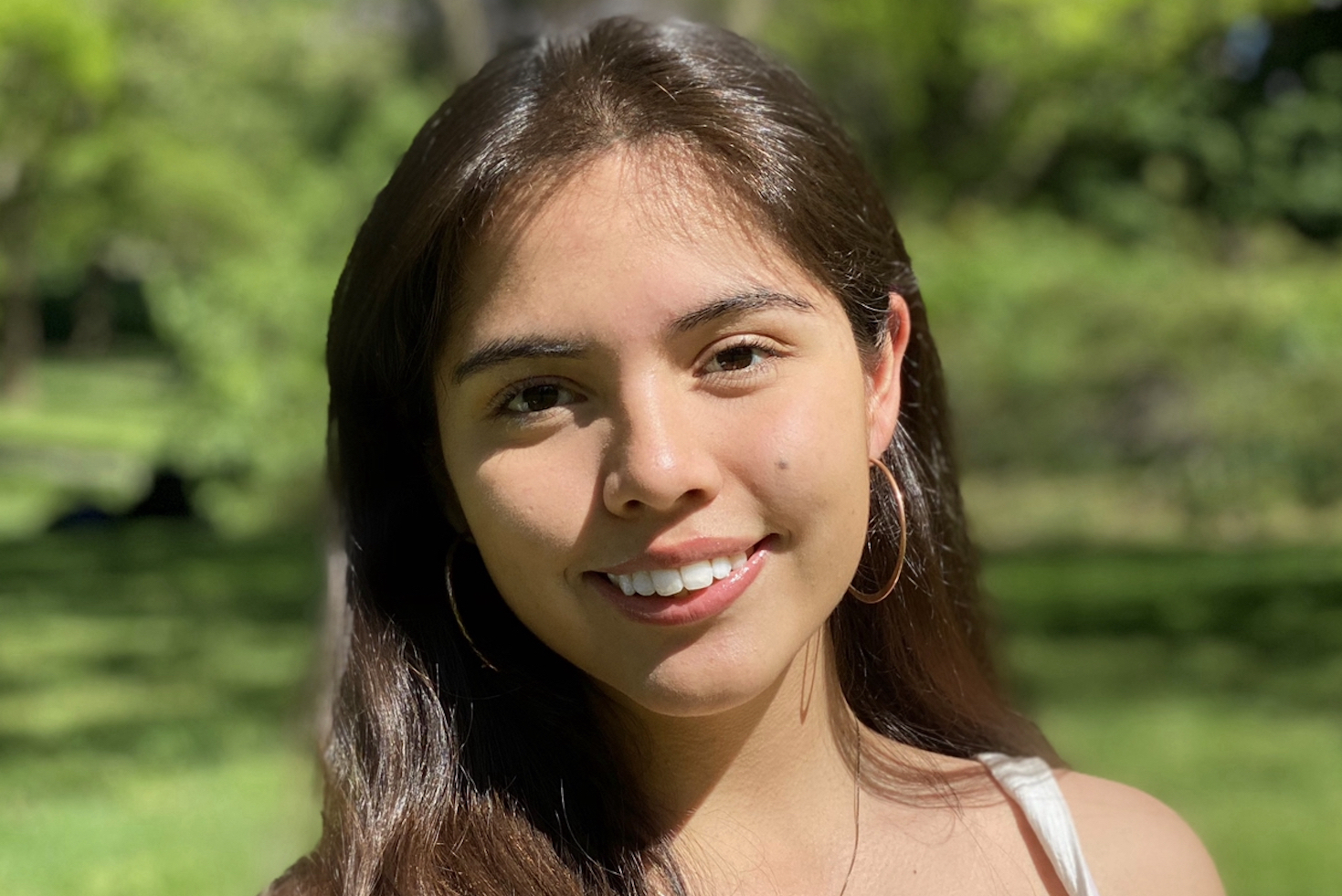
Xiye Bastida, Activist/Image credit
Xiye Bastida, co-founder of Re-Earth Initiative
Climate activist Xiye Bastida, a member of Mexico’s Indigenous Otomi-Totec people, made her debut on the world stage at age 15, when she stood in for her father — a scholar in Indigenouse land preservation — at the World Urban Forum in Malaysia. (Her mother is an ethno-ecologist, and the family moved to New York when she was 13.) Bastida’ speech about sustainable development drew on a story from her childhood, when a university made an ill-fated attempt to build near a wetland in her community. It’s a memory she often shares as a widely sought after speaker.
Now 19, Bastida juggles her courses in environmental studies and public policy at the University of Pennsylvania with coordinating events for organizations including the youth-led Fridays for Future and the Re-Earth Initiative, and making appearances at high-profile climate events.
Last year, she addressed both President Joe Biden’s Climate Leaders Summit and COP26, harshly criticizing the actions of countries in the Global North for continuing actions that pollute “sacrifice zones” in both the Southern hemisphere and in Black, Brown and Indigeneous communities in North America.
“How many COPs are you going to have before we take action?” Bastida admonished the delegates. “We know exactly what needs to be done, and it starts by opening our hearts and our spirits.”
Susan Chomba, WRI Africa
Susan Chomba, Director of Vital Landscapes, WRI Africa
A scientist with a Ph.D. in forest governance from the University of Copenhagen, Susan Chomba cultivated her interest in the environment on her family’s small farm near Mount Kenya. “I have always been determined to understand how agriculture and nature can be mutually synergistic rather than one destroying the other, and how farmers can be agents of positive change,” she recalled in a recent interview.
Over the past 15 years, Chomba has turned that childhood passion into a career that has seen her work with thousands of smallholder farmers in Africa to restore degraded landscapes. Before joining the World Resources Institute in April, she led Regreening Africa, one of the largest projects managed by research organization World Agroforestry. Focused on restoring land in eight African countries, it has touched more than 500,000 householders.
Her new role builds on that work, centering on developing approaches in climate change mitigation and adaptation, reducing poverty and enhancing gender equity, reversing biodiversity loss, building resilience in agriculture and food systems, and enhancing access to clean energy. “One of the key things I’m concerned about with these billions of dollars for restoration in Africa is how much will go to local communities to compensate them for restoration,” she observed about the cascade of forestry-related pledges made in November around COP26.
Chomba is also an adviser to the Giveone and Reforest Action initiatives, and a global ambassador for the United Nations’ Race to Resilience campaign.

Tiffany Chu, City of Boston
Tiffany Chu, Chief of Staff, City of Boston
Tech entrepreneur and first-generation Tawainese-American Tiffany Chu’s career made a sudden U-turn in January, when she was named as chief of staff for climate-minded Boston Mayor Michelle Wu — although it’s not the first time she’s made her office in city hall.
After a stint at Zipcar, Chu was most recently CEO and co-founder of Remix, a transportation planning software company bought by Via in 2021. Originally developed during a Code for America Hackathon, the Remix platform is used in more than 500 cities globally (including Boston) to help improve accessibility for public transit options.
Trained as an architect at the Massachusetts Institute of Technology, Chu previously served as commissioner for the San Francisco Department of the Environment. In her new role, she spearheads the intersection of Wu’s transportation and climate justice agendas. “The 15-minute city isn’t supposed to just be where the buildings are tallest,” Chu said in a 2021 interview with MIT Technology Review. “It should be based on a truly livable neighborhood center.”
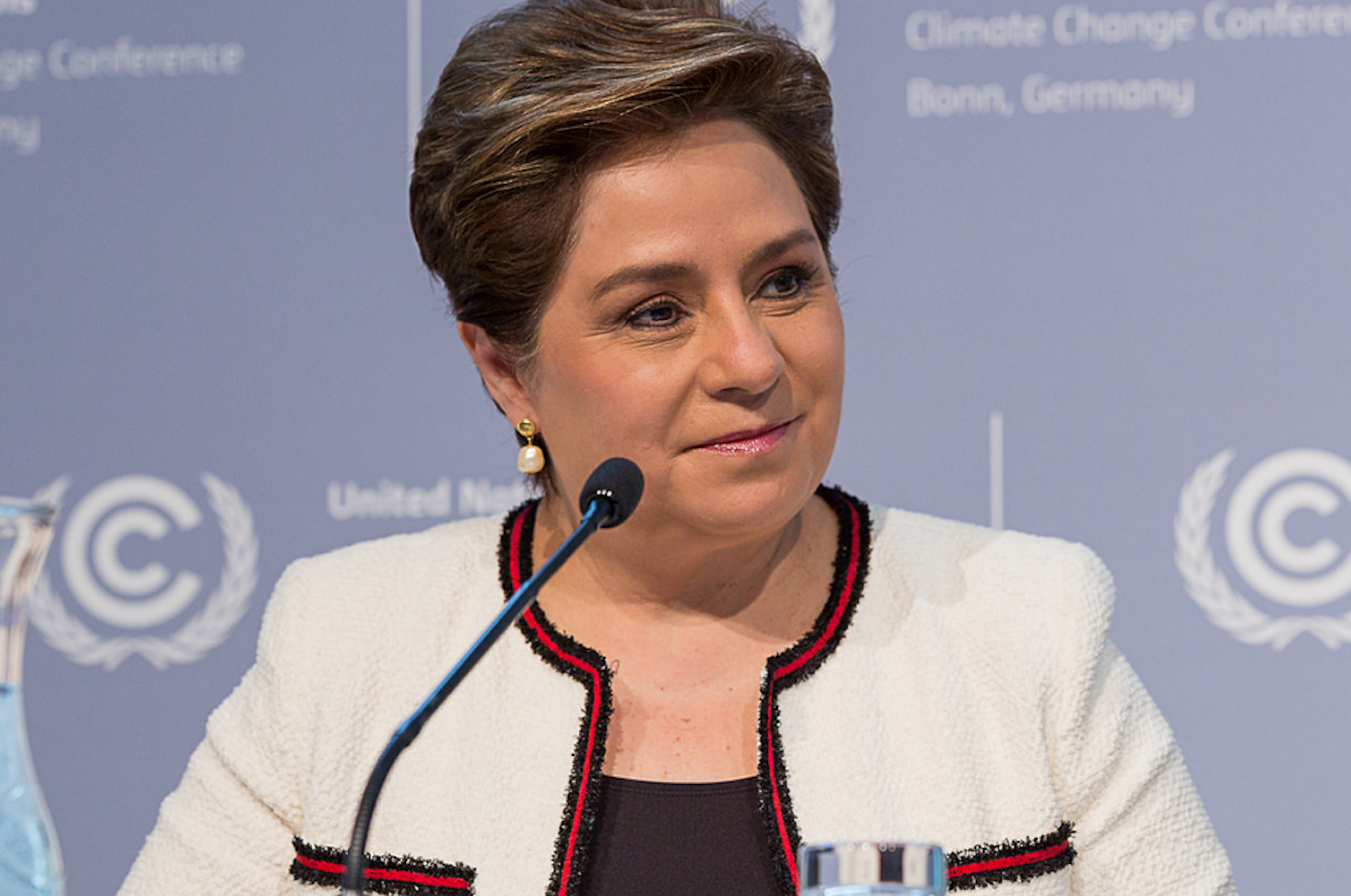
Patricia Espinosa, UNFCCC
Patricia Espinosa, Executive Secretary, United Nations Framework Convention on Climate Change (UNFCCC)
“Negotiations are never easy and while we seek an outcome that is acceptable to all, few return home completely satisfied. But this is the nature of consensus and inclusive multilateralism.”
With those words, long-time Mexican diplomat Patricia Espinosa — who succeeded Christina Figueres in May 2016 as leader of the United Nations Framework Convention on Climate Change — bid adieu to attendees of the COP26 assembly in November. In her remarks, Espinosa described the meeting as a “bridge between good intentions and measurable actions” and pledged more inclusivity in future proceedings.
Previously Mexico’s ambassador to Germany, Espinosa has been at the center of the movement to address climate change for decades; she served as the chair of the 16th Conference of the Parties in 2010 in Cancun, where the framework for a Green Climate Fund was established. The need for that financing — to help developing nations with climate adaptation and resilience — was one of the most contentious issues in Glasgow and is sure to be central to this year’s COP27 gathering in Egypt.

Jennifer Granholm, DoE
Jennifer Granholm, Secretary of Energy, United States
The long-time advocate of clean energy was the first woman elected as governor of Michigan, where she drew praise for strengthening the automotive industry during the economic downturn caused by the Great Recession of 2008 and setting the stage for its emerging status as a hub of electric vehicle battery production.
After serving two terms, Canadian-born Granholm joined the faculty at University of California at Berkeley and also advised the Clean Energy Program for Pew Charitable Trusts.
In her role as the Biden-appointed U.S. Secretary of Energy, Granholm has moved swiftly to free up research and development funds for “earthshot” technologies vitally important to the clean economy, including carbon capture and sequestration systems, green hydrogen and energy storage.
She is also advocating for stronger support of domestic manufacturing, a strategy that could create millions of good-paying jobs, a cause she has long championed. And her agenda is rooted in concern in ensuring that the energy transition is equitable. “We need diverse perspectives and experiences at the table, and women need to be equally represented,” she said in remarks to a clean energy symposium in late 2021. “I say this because it is not just for equity purposes, which is of course important, but it is also for effectiveness purposes. … We have to practice vigilant inclusion.”

Sonia Guajajara, APIB/Image credit = CMMPV – Comissão Mista da Medida Provisória/Senado Federal
Sônia Guajajara, Executive Coordinator, Association of Indigenous Peoples of Brazil
Brazilian activist Sônia Guajajara is a passionate and public advocate for Indigenous rights — in 2017, performer Alicia Keys invited her onstage to share her message during the Rock in Rio music festival.
Born on Araribóia Indigenous Land in the state of Maranhão, Guajajara ran for federal office in 2018. Her strong positions on Indigenous land rights and policies in Brazil have made her a target for its current administration, which has accused her of harming the country.
Deforestation has been a central focus for her organization, the Association of Indigenous Peoples of Brazil (APIB). Last month, the group rallied vocally around a related cause — the increase of allegedly illegal mining interests in the Brazilian Amazon — with a report suggesting that Capital Group, BlackRock, Vanguard and others have collectively invested almost $15 billion in nine mining concerns staking claims in Indigenous territories.
“We cannot go on living side by side with activities that force Indigenous peoples to mourn the daily murder of our relatives, or to witness the destruction of biomes which we guard, in order to give way to projects that generate no real development but only destruction and projects for a handful of individuals,” Guajajara said in a statement.

Elysa Hammond, Clif Bar
Elysa Hammond, Executive Fellow, Regenerative Business and Climate Solutions, Clif Bar
A benefits program that encourages employees to drive electric vehicles. A bakery in Idaho certified for its biophilic design features. Expansive solar installations complete with pollinator-friendly habitats. A multimillion-dollar fund that helps farmers invest in climate resilience. These are just a few of the programs long-time environmental stewardship leader Elysa Hammond has helped bake into Clif Bar’s sustainability strategy over the past 20 years.
Her long-time motto is “Think like a tree.” After all, trees thrive on 100 percent renewable energy, recycle their waste, and improve the places they grow. It’s an ingredient central to the company’s sustainability model.
In October, Hammond took on another new role within the Clif Bar innovation team: its first executive fellow for regenerative business and climate solutions. Her primary agenda: Surface strategies that will help Clif Bar become a truly regenerative company, and refine the company’s metrics — internally and externally — to more “easily” track the climate impact of its products.
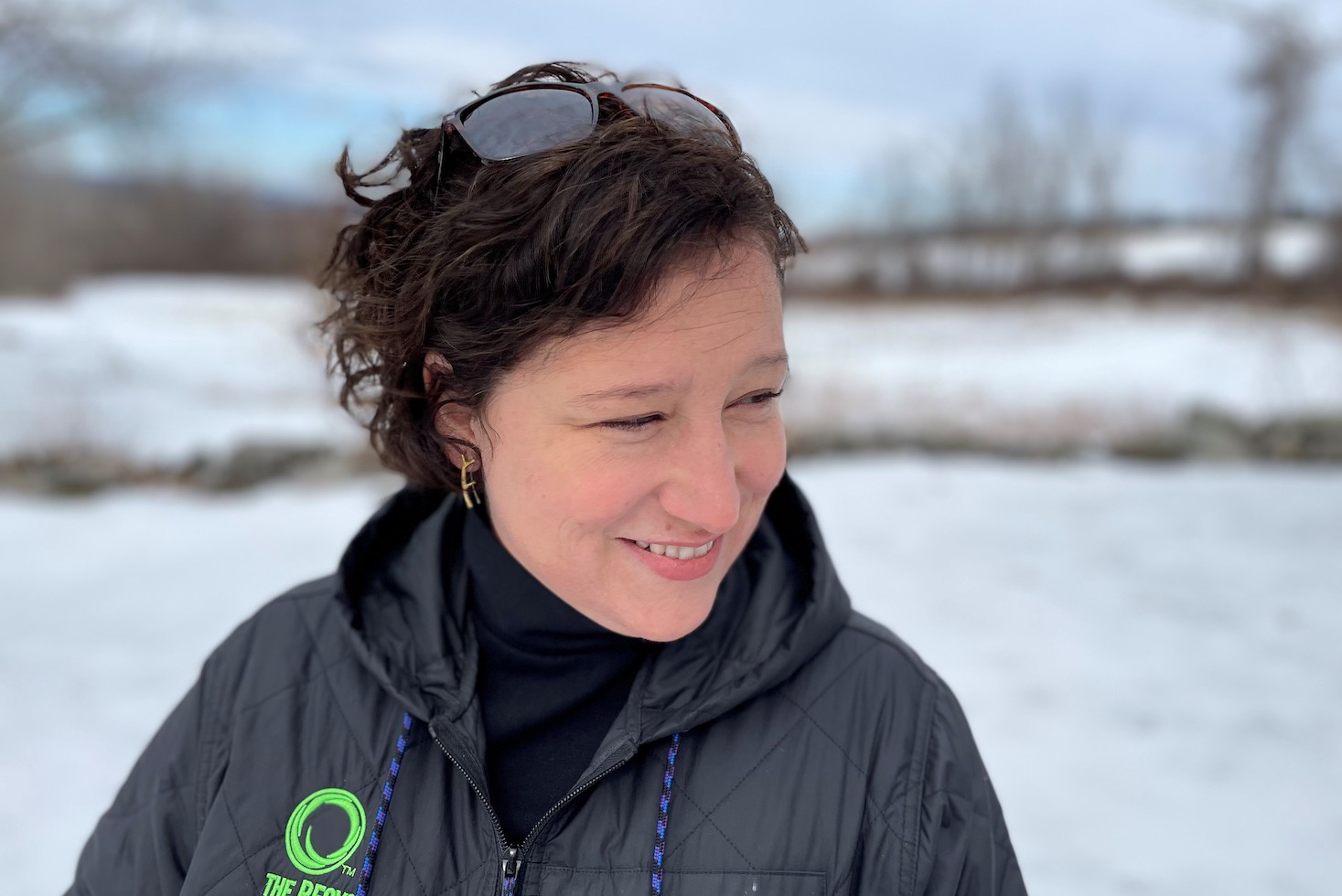
Keefe Harrison, The Recycling Project
Keefe Harrison, co-founder and CEO, The Recycling Partnership
With two decades of experience in circular economy strategy, Keefe Harrison in 2014 co-founded The Recycling Partnership, a national, corporate-backed nonprofit that has so far leveraged more than $120 million to address gaps in the U.S. recycling system.
Under her leadership, The Recycling Partnership — which has more than 70 funding partners — has so far helped divert more than 500 million pounds of recyclable products and materials from landfill. “Recycling is when something old becomes new again — what we need to ensure is that is by plan, not just by chance, as is the current case,” Harrison said in a statement to the U.S. House science committee in June.
The organization was part of the consortium involved in the development and launch in 2020 of the U.S. Plastics Pact, a collaborative initiative pushing to make all plastic packaging reusable, recyclable or compostable by 2025. One of its specific commitments: to support the recycling or composting of 50 percent of plastic packaging by that time frame. If accomplished, this action could increase the annual plastics recycling rate by 5.3 million tons per year.
One of the partnership’s newest programs is a Recycling Inclusion Fund meant to address systemic inequities in the availability of recycling infrastructure related to race, gender and income. Among other things, it will focus on ways to improve access and participation in recycling by Black, Indigenous and people of color (BIPOC) communities and offer leadership and training opportunities for BIPOC individuals seeking to build careers in the circular economy.
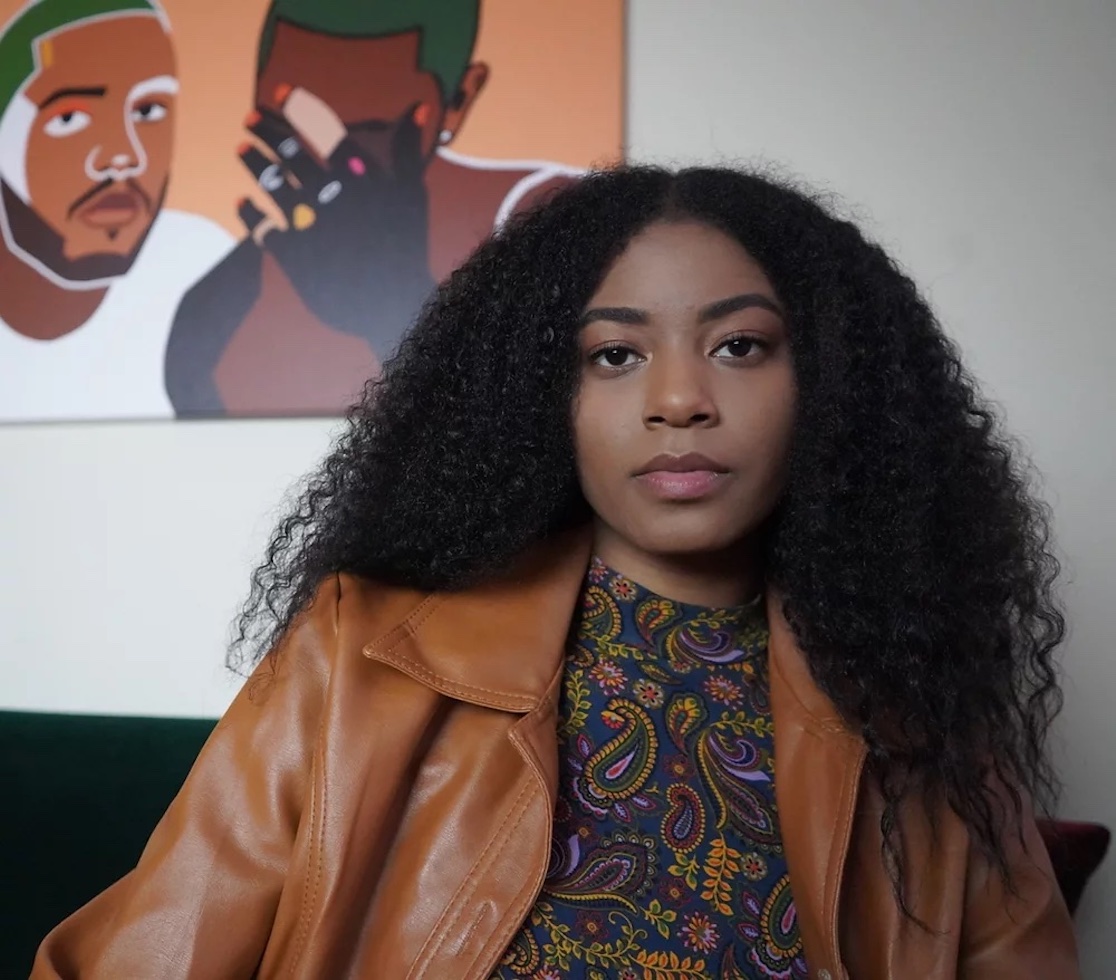
Destiny Hodges, Generation Green
Destiny Hodges, founder and Co-Executive Director, Generation Green
LinkedIn | Organization Twitter
Communications specialist Destiny Hodges, who’s wrapping up her final year at Howard University in Washington, D.C., and is on the school’s student sustainability committee, is pioneering a movement she calls “environmental liberation.”
She’s one of several Gen Z Black women — many of whom met at the annual HBCU Climate Change conference — who in 2019 created Generation Green, a nascent nonprofit aimed at “uplifting” the work of environmental leaders who identify with the Afrikan Diaspora — and educating a broader community about the impact.
Hodges, who interned at Sierra Club in 2019 and also works with the Hip Hop Caucus, describes climate change as “another form of genocide” being inflicted on Black communities. “I started thinking about starting a nonprofit specifically that was a safe space for Black people, primarily Black youth, to really explore what environment means to them, and to just be in a safe space,” Hodges said in February 2021. “I think that’s so hard to find in this movement, in this work, especially as a young person … and even in the youth climate movement, that’s not a safe space for Black youth.”
Generation Green may be youth-led, but it celebrates the value of intergenerational networks ad “houses” focused on specific solutions. “We are a family that practices interdependence and crafts unique roles for our team based on individual experiences, skills, interests and social change ecosystem roles,” she wrote in February 2021.
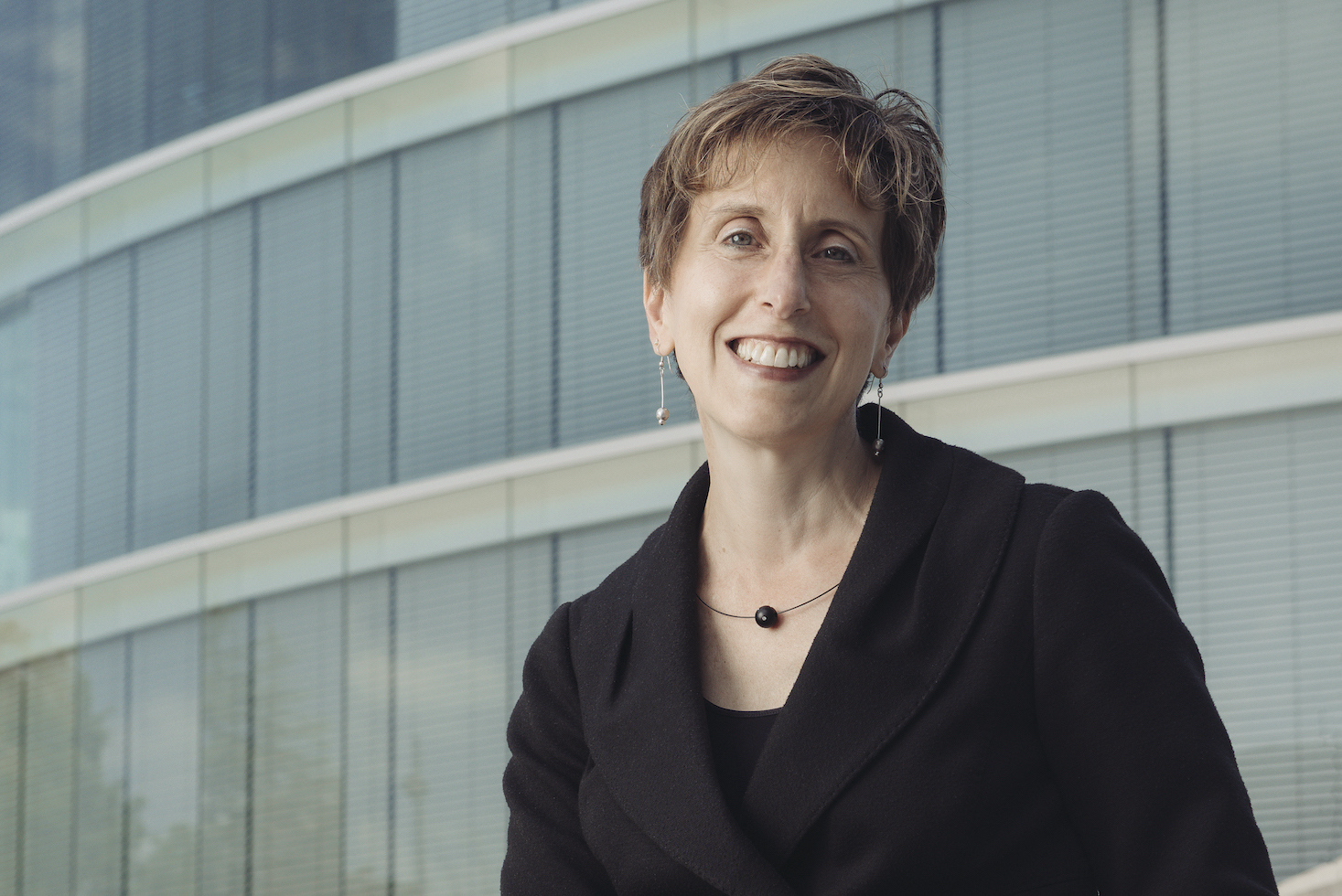
Diane Holdorf, WBCSD
Diane Holdorf, Executive Vice President, World Business Council for Sustainable Development
Diane Holdorf was one of the first Fortune 500 executives to hold the chief sustainability officer title, spending close to 11 years in leadership roles for cereal company Kellogg. Although her degree from Syracuse University is in communications, she followed in her father’s footsteps by working in environmental consulting for more than 15 years.
Recognized in 2015 as a “Super Woman” by the International Maize and Wheat Improvement Center for her work in helping elevate farmers, Holdorf joined the World Business Council for Sustainable Development (WBCSD) in December 2018 as director of its food and nature programs. In October, Holdorf was elevated to her current role shaping the organization’s Pathways initiatives, which are action plans for systems transformation developed collaboratively by WBCSD member companies.
Her responsibility now spans food, energy, products and materials; mobility and built environment; and health and well-being — it’s about making connections personally and collaboratively, a sensibility Holdorf has cultivated throughout her career.
“Some people come at this from a water lens, some from an economic lens, some from a clean energy lens,” she told GreenBiz in 2015. “Opportunities exist in a breadth of areas to connect with that passion … When you get that connection is when you can really start to drive meaningful change.”

Jennifer Holmgren, LanzaTech
Jennifer Holmgren, CEO, LanzaTech
Chemist Jennifer Holmgren is the long-time chief executive of carbontech upstart LanzaTech, which is turning recovered carbon dioxide into materials and feedstocks for other products. In 2020, the company spun out its sustainable aviation fuel work into a separate company, LanzaJet, which in January raised $50 million from the Microsoft Climate Innovation Fund.
The author of more than 50 patents, Holmgren is credited with developing the first low-carbon, drop-in aviation fuels during her previous role at UOP, a Honeywell company — in 2003, she was the first woman recognized with the prestigious Malcolm E. Pruitt Award from the Council for Chemical Research (just one of her many accolades).
In her current role, which she has held since 2010, Holmgren is forging partnerships with companies such as Inditex brand Zara, which is working with LanzaTech to turn CO2 captured from steel mill emissions into ethanol and eventually a low-carbon polyester yarn. The fabric was first used for a party dress collection. LanzaTech has similar relationships with apparel company Lululemon, cosmetics maker L’Oreal, fragrance and perfume producer Coty, and Unliever, which is using LanzaTech’s carbontech for a surfactant in laundry capsules.
One of LanzaTech’s strategic partners is steel producer ArcelorMittal, which in December invested $30 million in the startup — the two are building a plant expected to produce 80 million liters of bio-ethanol annually. LanzaTech researchers are pushing to extend its technology to other chemicals, including acetone (used in nail polish) and isopropanol (found in everything from antifreeze to household cleansers).
“This bioprocess provides a sustainable alternative to today’s production routes to these essential chemicals, which currently rely on fresh fossil feedstocks and result in significant toxic waste,” Holmgren said of the recent breakthrough.

Frederika Klaren, Polestar
Fredrika Klaren, Head of Sustainability, Polestar
Civil engineer and would-be oceanographer Fredrika Klaren traveled an unusual route to her role at Swedish electric vehicle maker Polestar, working at retailers IKEA and KappAhl before joining the Volvo subsidiary in 2020. Her mandate: Drive the company’s strategy for circularity and climate neutral operations. One of Polestar’s North Star goals is to create a “truly climate neutral car” by 2030 without having to rely on carbon offsets.
Under Klaren’s leadership, Polestar is among the only automakers to publish the carbon footprint of its latest models, essentially making it as visible as the sticker price. The company has also established a relationship with blockchain software provider Circulor, through which it is able to trace the origins of materials, giving it more visibility into “at risk” materials from an emissions or human rights standpoint.
And Polestar in late February disclosed that it has forged partnerships with metals company SSAB to source fossil-free steel and with aluminum and renewable energy company Hydro to collaborate on low-carbon aluminum. It’s part of Klaren’s vision to propagate circular design principles across the company’s production processes. “Materials are basically at the core of the different environmental impacts that we have, whether it is pollution and energy use, or social impacts on workers’ rights and safety issues, especially in connection to the extraction and refinement of raw materials,” she said in an interview. “We’re going from using mostly a few chosen materials (like conventional polyester or steel) to trying out new innovative and circular materials on a smaller scale.”

Katie McGinty, Johnson Controls
Katie McGinty, Vice President and Chief Sustainability and External Relations Officer, Johnson Controls
With more than 25 years of experience in both the public and private sectors, Kathleen “Katie” McGinty staged an 2016 unsuccessful run to represent Pennsylvania in the U.S. Senate as a Democrat before taking on her current role in 2019.
As head of sustainability for HVAC and building technology company Johnson Controls, which generated nearly $24 billion in sales for 2021, McGinty is a member of the executive committee, responsible for setting climate commitments and championing government policies that help make it easier for the private sector to deliver.
Among the many initiatives Johnson Controls supports is Amazon and Global Optimism’s Climate Pledge, a group of companies and organizations that set a collective goal to achieve net zero carbon by 2040. One of the company’s rallying cries is the vital role energy efficiency will play in moving toward net-zero carbon buildings.
A chemist and lawyer by education, the early days of McGinty’s career were shaped by public-sector work on environmental policy — in her early 30s, she led President Bill Clinton’s Council on Environmental Quality. McGinty went on to lead the Pennsylvania Department of Environmental Protection, where she helped enact the state’s alternative energy portfolio standards.
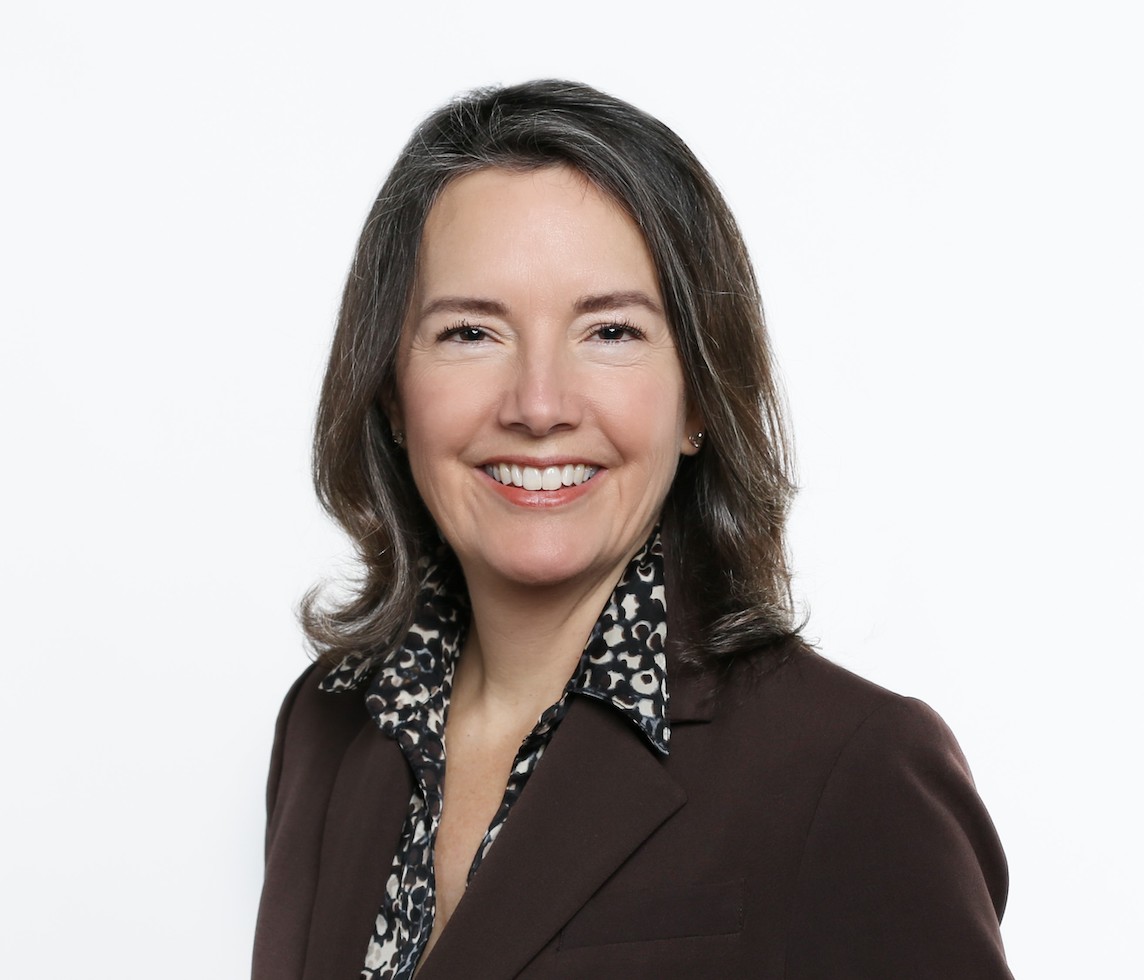
Kathleen McLaughlin, Walmart
Kathleen McLaughlin, Executive Vice President and CSO, Walmart; President, Walmart Foundation
Backed by a convergence of degrees in electrical engineering, politics, philosophy and economics, Kathleen McLaughlin joined the world’s largest retailer more than eight years ago after two decades with McKinsey & Co. Under her leadership, Walmart has prioritized sustainable business practices through its own operations and those of its supply chain, setting new bars for its industry along the way.
Walmart was the first retailer to set science-based targets in 2016, and in fall 2020, it set a goal to become a “regenerative” company — by restoring, renewing and replenishing the resources it uses to support its business, without relying on carbon offsets. While many big companies have yet to set Scope 3 targets, Walmart has engaged more than 3,100 suppliers on decarbonization strategies — avoiding an estimated 416 million metric tons of CO2 equivalent since 2017.
More recently, McLaughlin’s team has stepped up Walmart’s focus on fashion, with ambitious 2025 sourcing goals for sustainable cotton and recycled polyester, as well as a new policy that embeds considerations for biodiversity and ancient or endangered forests into purchasing man-made cellulosic fibers.
And last September, Walmart raised a $2 billion green bond, the largest corporate offering to date. The funds will be allocated to renewable energy projects, habitat restoration, sustainable transportation investments, water stewardship and circular economy initiatives, among other things.

Durreen Shahnaz, IIX
Durreen Shahnaz, Founder and CEO, Impact Investment Exchange
Durreen Shahnaz is the founder of Impact Investment Exchange (IIX) and its related foundation, which both focus on connecting the “Back Streets of underserved communities to the Wall Streets of the world.”
As of late January, the organization’s work had “unlocked” about $235 million in private-sector investments supporting women-focused enterprises in India, Indonesia, Cambodia and the Philippines. The proceeds have been used for initiatives ranging from financing electric transport to addressing water and sanitation infrastructure to installing solar panels. The organization’s Women’s Livelihood Bond for climate series — gender-focused social bonds first listed on the Singapore stock exchange in 2017 — are considered the first impact investing instruments to be listed for public trading.
Shahnaz is no stranger to accolades: Most recently, the Bangladeshi-American entrepreneur received the 2020 UN Women’s Asia-Pacific Women’s Empowerment Principles award and in 2017, she was recognized with the 2017 Oslo Business for Peace award. Her mission: to do her part in shrinking the $300 billion financing gap for women, a “defiant” agenda she embraced during her childhood in war-time Bangladesh. “What you have you share, and what you get in return is the blessing,” she recalled in a September interview.

Emma Stewart, Netflix
Emma Stewart, Netflix Sustainability Officer
Since joining Netflix in October 2020 as its inaugural sustainability officer, Emma Stewart has focused on getting the streaming media company’s house in order with carbon reductions based on science-based targets and putting its voice to work in building awareness about climate change.
She has acted decisively over the past 18 months on her motto for making decisions: optimize; electrify; decarbonize. At least half of Netflix’s footprint comes from its physical productions to shoot original films and shows, so the team is using local crews and catering resources, and piloting new technologies to power the equipment including mobile batteries and green hydrogen fuel cells. What about its travel footprint? Netflix in April was a co-founder of the Sustainable Aviation Buyers Alliance.
While Stewart’s team is still young, it consults a diverse panel of advisers that includes activist Xiye Bastida, former diplomat Christiana Figueres and climate scientist Katherine Hayhoe.
On the story-telling side, Stewart was involved in connecting the scientific community with the filmmakers behind “Don’t Look Up,” which has spurred many conversations about climate denial. Another high-profile production: The Oscar-winning documentary “My Octopus Teacher.” In 2020 alone, more than 160 million households viewed Netflix programs centered on building awareness of environmental issues and the natural world.
A long-time sustainability advocate, Stewart has a Ph.D. in environmental science, policy and management. She previously held positions in the nonprofit world (BSR, World Resources Institute) and was head of sustainability solutions at software firm Autodesk for almost eight years.

Jessica Tan, BlackRock
Jessica Tan, Head of Corporate Strategy, BlackRock
Jessica Tan has spent almost 12 years, more than half her career, in various roles at BlackRock — assuming her current position as head of corporate strategy in June 2019 after serving about two years as chief of staff to CEO Larry Fink.
Educated at Duke and Harvard universities, she was an architect behind the 2020 launch of the investment management firm’s evolving sustainability strategy, “determining the firm’s net-zero commitments in 2021 and crafting its transition investing strategy in 2022,” according to a spokesperson.
Tan’s influence has already shown up as part of Fink’s annual guidance for CEOs on ESG issues and as the foundation for new services and business initiatives. For example, her team collaborated in 2021 with BlackRock’s Alternative Investors group to launch Decarbonization Partners. The partnership with Temasek focuses on late-stage venture capital and early-growth private equity investments that could advance decarbonization solutions and “accelerate global efforts to achieve net zero by 2050.”
“We think the reallocation of capital in this direction is real, and it’s going to accelerate,” Tan said in an April interview at GreenFin. “So for us, it’s absolutely an historic investment opportunity.”
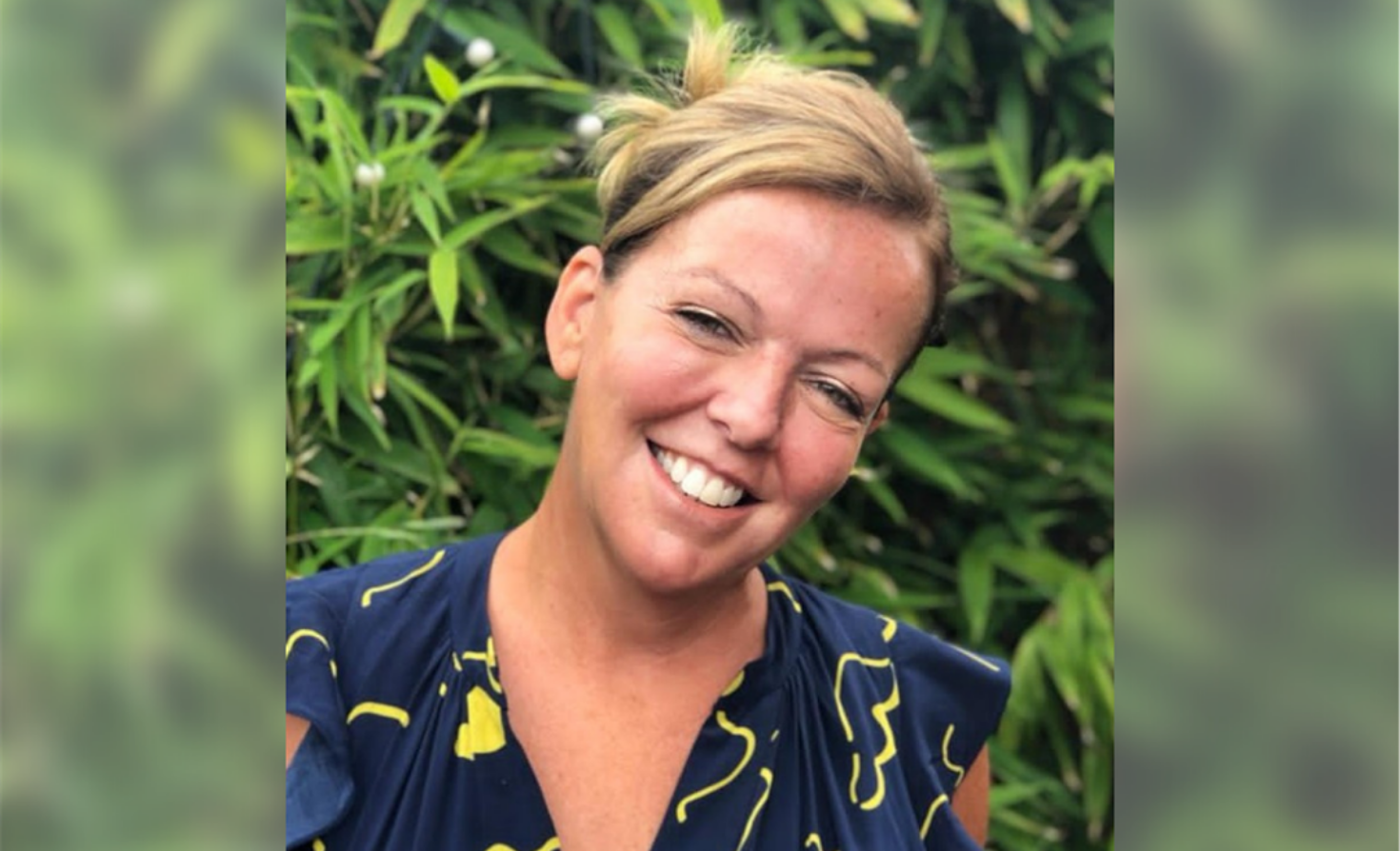
Sally Uren, Forum for the Future
Sally Uren, CEO, Forum for the Future
This year marks Sally Uren’s 20th anniversary with nonprofit Forum for the Future, which specializes in bringing together businesses, governments and civil society to address systemic obstacles to sustainability — and her ninth year as CEO.
Uren is actively involved in multiple projects, including Cotton 2040, which seeks to mainstream various cotton cultivation initiatives by better coordinating them; and Growing Our Future, which aims to scale regenerative agriculture practices in the United States. She was also involved in the creation of the “Net Positive” principles, which hold that companies should generate more natural and social capital than they use in the course of doing business. For this work and more, Uren was recognized in 2019 as an Officer of the Most Excellent Order of the British Empire.
An environmental scientist with a Ph.D. from the Imperial College of London, one cause about which Uren is particularly passionate is the role of systems change in accelerating the just transition to a clean economy. She’s building the Forum’s School of System Change, which hopes to encourage more teams to place this ethos at the heart of their strategy.
“I think that to drive the transformation we know is needed, we need to tackle the root causes of our climate breakdown and structural inequality,” she said in a recent GreenBiz 350 interview. “And I think we’re at a really incredible moment in time. Everything around us is shifting,” Uren continued, pointing to the massive transitions under way in food, energy, health and the global economy.

Gloria Walton, The Solutions Project
Gloria Walton, President and CEO, The Solutions Project
During Gloria Walton’s first year as president and CEO of The Solutions Project (TSP), the organization quadrupled its impact: As TSP’s CEO, she raised $50 million to fund community-centered climate solutions, including $43 million from the Bezos Earth Fund. Walton also sits on multiple government grant and philanthropic funds outside of The Solutions Project and across all her roles, she helped move $112 million in grants to frontline climate justice groups in more than 30 states.
Walton is drawing on more than 16 years as a community organizer in Los Angeles and her childhood experiences in Jackson, Mississippi, to uplift climate “solutionaries” (many of them women) within BIPOC communities.
Two years ago, to bring more attention to BIPOC contributions to the climate movement — and to highlight the traditional lack of representation for these communities at high-profile climate gatherings — she spearheaded the creation of Black Climate Week, marked this year during Black History Month in February. Walton recently joined the board of World Resources Institute to build that perspective.
“When you live in an under-resourced community, you show up for one another in the time of need. It was this kind of care that allowed me to see that my community is and has always been natural caretakers of the planet and of each other,” she wrote in a recent essay. “The climate movement is deeply intersectional; it’s more than sea level rise and forest conservation — it’s about labor and workers, it’s about food justice, it’s about transit, it’s about public health and housing, and it’s about accessibility to resources.”













